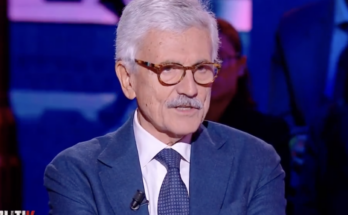The trial against Álvaro García Ortiz took place on Thursday, the first against a state attorney general. The hearing ended with the intervention of the State Attorney’s Office, which requested the acquittal of García Ortiz. “The facts lack an evidentiary basis (…) An institutional activity of reporting and issuing an official statement to disseminate information that called into question the institution, the prosecutors and the State Attorney General was criminalized,” said lawyer José Ignacio Ocio. The Legal Department accused businessman Alberto González Amador, partner of Isabel Díaz Ayuso and prosecuted for tax fraud and document falsification, of acting in “bad faith” for omitting relevant data in the complaint that brought García Ortiz to court. Ocio also claimed that it was González Amador who violated the secrecy of his lawyer’s negotiations with the Public Prosecutor’s Office by forwarding an email from the public prosecutor to the chief of staff of the president of Madrid and providing the details of this negotiation with a Madrid journalist. The world.
The intervention of the Public Prosecutor’s Office put an end to a historic trial during which the head of the public prosecutor occupied the position of accused for six days. García Ortiz could have exercised his right to say a few last words before the president of the court closed the hearing, but he waived it. With that decision, the last argument heard in the courtroom was that of the state attorney, who assured the attorney general’s innocence and tried to refute one by one all the evidence that had emerged hours earlier regarding the accusations. “There is absolutely no evidence because there can be no evidence,” he said.
One of the pillars of the defense is to deny that the conditions exist for the crime of revealing secrets attributed to García Ortiz to have existed. The lawyer recalled that Supreme Court jurisprudence establishes that something ceases to be secret when it has been known to the media, and six journalists who testified assured that they knew the alleged secret – that is, that González Amador acknowledged his crimes to try to reach an agreement that would reduce his sentence – before the attorney general received the email on which the investigation is focused. Ocio underlined the “plausibility” of these testimonies, some of which were credited with WhatsApp messages embedded in the case.
The defense rejects the prosecution’s theory that these witnesses are not credible because they are protected by professional secrecy so as not to reveal the source of their information. The lawyer cited on this point the dissenting opinion issued by Supreme Court Justice Andrés Palomo against García Ortiz’s accusation: “To deny the effectiveness of that testimony by a judicial body because it can identify the source, but does not, is a request to waive a right to the constitutional provision that is difficult to understand.”
However, the Law Firm argues that, even without the testimony of these journalists, González Amador’s acknowledgment of the crimes was no longer a secret when García Ortiz received the email, because it was the businessman himself and his entourage who violated that supposed confidentiality. This happened, the lawyer specified, when Ayuso’s partner forwarded to Miguel Ángel Rodríguez the email that his lawyer had just sent him in which the prosecutor was willing to accept a compliance agreement; but also when González Amador himself spoke on the morning of March 13th with the journalist from The world who, a few hours later, at 9.29pm, signed the news which contained the false version according to which it was the public prosecutor who had offered a deal to the entrepreneur.
This information included details of the deal Ayuso’s partner was negotiating and quotes from the email the prosecutor had sent to his lawyer. “When the holder of a secret involves third parties, the secret is lost,” warned Ocio. “We will have to ask ourselves whether talking to a journalist and passing (the email) to his partner’s chief of staff are typical acts of the protection he is seeking now. What he cannot do is reveal those terms of agreement and, immediately afterwards, say that these conversations continue to be confidential.”
The defense also argues that even if the Supreme Court believes that a secret from Ayuso’s partner was revealed, there is no evidence that the attorney general leaked the email. Lawyers have sought to discredit the evidence on which the Supreme Court relied in judging the chief prosecutor and those accused. They were added during the process. Chief among them: that the email was released to the media just an hour and a half after García Ortiz received it.
For the lawyers this is “an inference of little value” because at the same time the chief prosecutor of Madrid, Almudena Lastra, also had access to that email (she is five minutes before the head of the Public Prosecutor’s Office); the provincial head, Pilar Rodríguez; and the doyen of economic crimes, Virna Rodríguez. That email also, the lawyer argued, became relevant when the El Mundo news story was published at 9.29pm. and, at that time, 16 other people (prosecutors and officials of the Prosecutor’s Office) also had access to it “from the comfort of home” in the generic email account to which González Amador’s lawyer sent the email. The defense questioned why, among all of them, the Supreme Court only investigated García Ortiz and Rodríguez (whom it ultimately exempted). “It’s a gap in the investigation, there’s no explanation,” he said.



